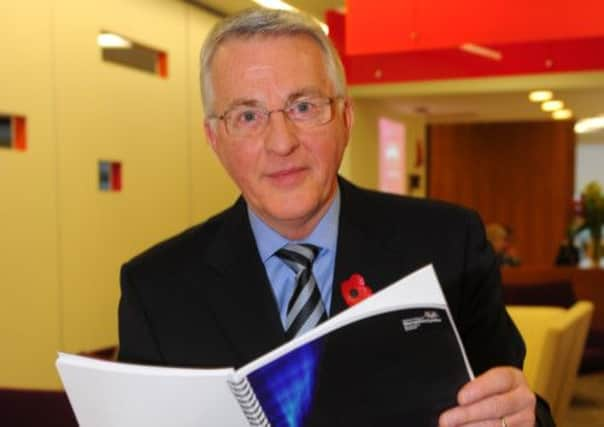‘Sterling zone’ claims dismissed by economists


First Minister Alex Salmond asserted last week that Scotland’s oil and gas resources “bankroll” sterling by adding £40 billion to the national pot and argued that the rest of the UK would need Scotland within a new sterling zone.
But his claims have been questioned by economists, including one of the UK’s leading figures who was awarded a key research role in the independence debate.
Advertisement
Hide AdAdvertisement
Hide AdDr Angus Armstrong, the head of macroeconomics at the National Institute of Economic and Social Research, told Scotland on Sunday that it was “hard to imagine” that the loss of oil revenues flowing into the UK economy would be “decisive” in the choice of a monetary union.
His comments follow Chancellor George Osborne’s speech in Scotland last week in which he said it may “not be worth it” for the UK to remain within a euro-style currency union with a newly independent Scotland given the fiscal meltdown across the continent in recent years.
Salmond responded by insisting that the loss of oil cash to the rest of the UK (rUK) would ruin its balance of payments figures, causing major problems for the pound on international currency markets.
But Armstrong, who was awarded an Economic and Social Research Council fellowship to examine the implications of Scottish independence, told Scotland on Sunday: “The transfer of oil [to Scotland] would make the rUK balance of payments worse. But oil exports are less than 10 per cent of UK total exports today.”
During First Minister’s Questions on Thursday, Salmond insisted that the rest of the UK needed Scotland to remain with the rest of the UK after independence. He declared: “The most substantial point is that Scottish resources bankroll the sterling area.”
However, Professor Brian Ashcroft, the head of the Fraser of Allander Institute at Strathclyde University, said the figure quoted by Salmond as the loss to the UK’s balance of payments actually amounted to at least ten times less. He said: “The upshot of all this is that, far from providing a major boost to the rUK balance of payments, if an independent Scotland retained sterling, the effect is largely neutral.”
But a government spokesman said: “The sharing of the pound between an independent Scotland and the rest of the UK is the common-sense position supported by the Fiscal Commission.
“A sterling zone is also in the overwhelming economic interests of the rest of the UK every bit as much as it is in the interests of Scotland.”